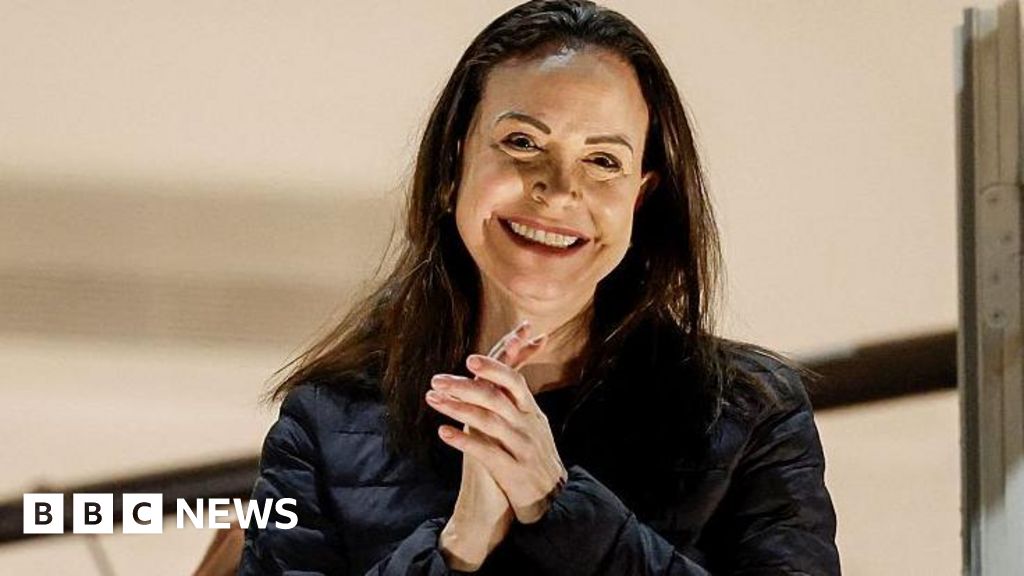Trump to meet Venezuela’s María Corina Machado on Thursday
Venezuelan opposition leader and Nobel Peace Prize winner María Corina Machado will meet President Donald Trump on Thursday, the White House has confirmed.
The visit comes just weeks after Venezuelan President Nicolás Maduro was seized in Caracas by US forces. But Trump declined to endorse Machado, whose movement claimed victory in 2024’s widely contested elections, as its new leader.
The US instead backed Delcy Rodríguez, Maduro’s former vice-president.
Machado said last week she hoped to thank Trump personally for the action against Maduro and would like to give the Nobel Prize to him. Trump called it “a great honour”, but the Nobel Committee later clarified that it was not transferable.
Earlier, Trump had expressed displeasure over Machado’s decision to accept the Nobel Peace Prize, an honour the president has long coveted.
Asked on Friday whether receiving Machado’s prize might change his view of her role in Venezuela, the president said: “She might be involved in some aspect of it.”
“I will have to speak to her. I think it’s very nice that she wants to come in. And that’s what I understand the reason is,” he said.
Earlier this month, after Maduro’s ouster, Trump had said Machado “doesn’t have the support within, or the respect within, the country”. “She’s a very nice woman, but she doesn’t have the respect,” he said.
The US has so far backed Delcy Rodríguez as Venezuela’s interim president.
Trump describes Rodríguez as an “ally”, and she has not been charged by US officials with any crimes.
“Delcy Rodríguez and her team have been very cooperative with the United States,” White House Press Secretary Karoline Leavitt said on Monday.
But Machado has maintained that her coalition should “absolutely” be in charge of the country.
Machado has said nobody trusted Rodríguez, telling CBS that the interim leader was “one of the main architects… of repression for innocent people” in the South American country.
“Everybody in Venezuela and abroad knows perfectly who she is and the role she has played,” Machado said.
The former legislator, who was awarded the Nobel Peace Prize last year, described US military action in Venezuela as “a major step towards restoring prosperity and rule of law and democracy in Venezuela”.
Rodríguez has rebuffed claims by Trump that the US was in charge of Venezuela.
“The Venezuelan government rules our country, and no-one else does,” she said in a televised speech. “There is no external agent governing Venezuela.”
